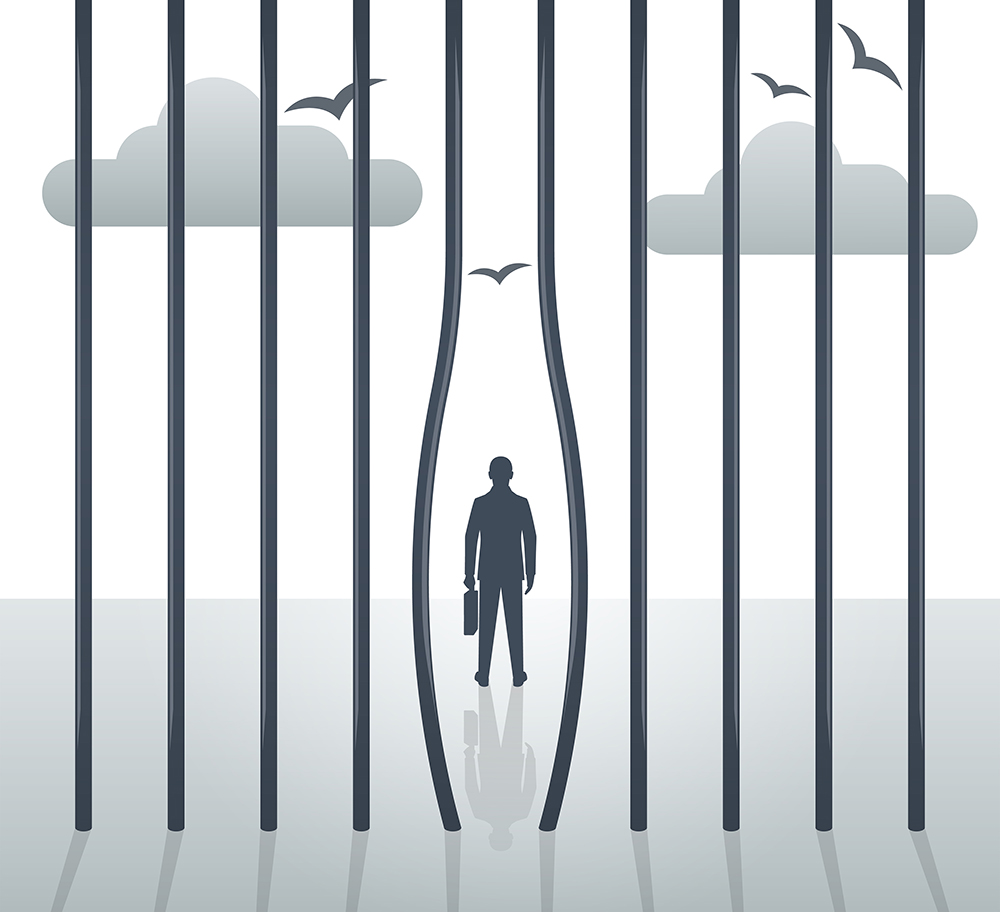by Suzanne Potter
A new report on the plight of older adults reentering society after a long period of incarceration found they have an extremely hard time finding affordable housing, health care and community supports.
The report from the nonprofit Justice in Aging noted 30 percent of the prison population will be over age 55 by 2030.
Ted Booker, business development and grants manager for the nonprofit Arming Minorities Against Addiction and Disease Institute in Los Angeles, which helps people exiting incarceration, explained the need for support. ”When you go to prison it’s almost like your life gets on pause,” Booker pointed out.
“Whatever age you were, when you went in, it’s the same age your functioning level is going to be when you get out. I have individuals from anywhere from 40 to 60, with the functioning ability of a 15-year-old.”
Policymakers are working to make it easier for older adults returning from incarceration to get the care they need. Starting in January, the Centers for Medicare and Medicaid Services intends to provide a Medicare Special Enrollment Period for individuals age 65 and older who are leaving prison, so they will not face late enrollment penalties.
Dale Hughes, manager of fiscal administration for the group, said their New Beginnings program also helps people get an ID and connect with the right services. ”There are a lot of obstacles that do come into play,” Hughes acknowledged. “Nowadays, there are a lot of resources for previously incarcerated inmates. But there are only a chosen few that know about these resources.
“ The new California budget allows people who were on Medi-Cal before incarceration to have it suspended rather than terminated during their term, so it can be reactivated more easily upon release. The state also allocated almost $32 million over 3 years to support reentry housing, a move Booker applauds.
“They need the same attention that children are given in the Department of Children and Family Services,” Booker contended. “There needs to be a special category and special attention given to older adults because their needs are so great.”
Expert tips to save time, money during ‘make a will’ month
August is National Make-a-Will Month, and experts have some tips on saving you and your heirs time and money. According to Caring.com, only one-third of Americans have a will or living trust. Renee Conrad, an estate planning and probate attorney in Palo Alto, said a will helps your heirs avoid expensive litigation. ”A court is not the best setting for deciding who should handle your assets,” Conrad asserted.
“The court doesn’t know your family and friends. And it’s better not to leave that up to the judge, but for you to actually advocate for yourself by saying who you want to manage your assets in the will.” Conrad noted the probate process can be expensive and can take up to a year, during which time the assets are frozen. She cautioned people to spell out your assets and name a beneficiary and a backup, especially for retirement accounts, in case you outlive the first beneficiary.
She added a trust allows you to name a trustee to act on your behalf if you become incapacitated, and it avoids probate. Sam Young, senior director of legacy and planned giving for Compassion & Choices, said people need to have the conversation about mortality, even if it’s uncomfortable, even if you do not have a lot of assets.
“People don’t think they need a will because they only think it’s for the wealthy,” Young explained. “It’s absolutely not true. There are a lot of situations where you may want to leave specific assets to specific people.” The website FreeWill.com will help you list your assets and final wishes, with a survey which takes about 20 minutes to complete. The document can then be printed, signed and notarized.



